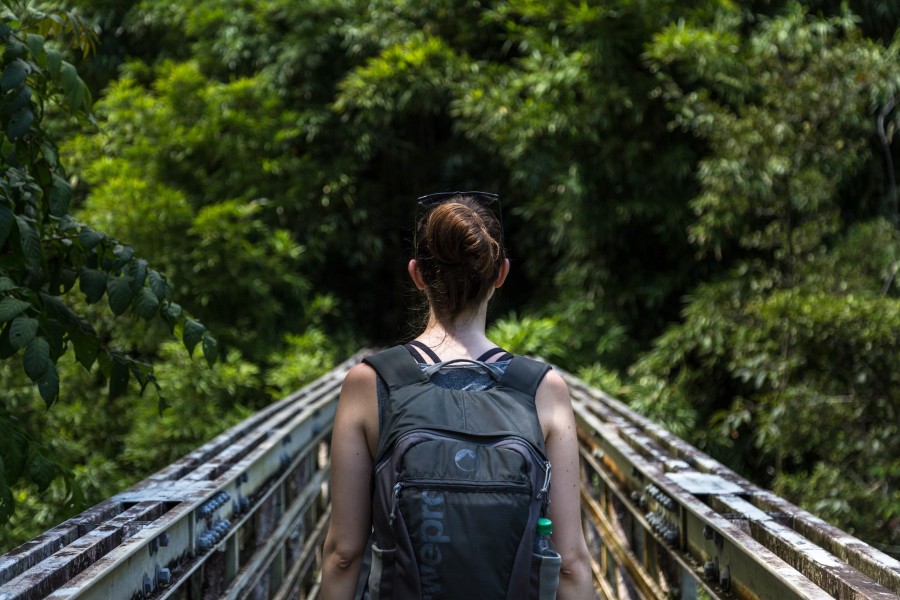Ramadan. It’s a word that is often confused as a lyric from the Grease hit “We go together,” but in fact, it’s an Islamic tradition that’s thousands of years old and celebrated by millions of people across the globe each year.
In a nutshell, Ramadan is one of the pillars of Islam and is sacred to Muslims the world over who believe it marks the time when the Quran (Islamic Holy Book), was first revealed to the Prophet Mohammed.
Every Ramadan, Muslims fast between dawn and dusk, and refrain from drinking water, eating food, smoking and even swearing. Even if you aren’t a practicing Muslim, Ramadan can play a big part in your travels. Take note of a few facts to consider while travelling through Muslim countries during Ramadan.
Fact #1: Hospitality is off the charts
Get ready for hospitality as you have never experienced before! After all, Ramadan is a time for getting together and celebrating many of life’s gifts. As a traveller, no matter your location, you can expect to be welcomed by people near and far to join them for large, boisterous evening feasts, called Iftar, which is traditionally when the fast is broken for the day at sun-down and people come together to celebrate and enjoy meals.
Fact #2: The dates can change
The date of Ramadan changes every year and is never set in stone! The end and beginning of Ramadan is dependent on the position of the crescent moon and when it is sighted in each place around the world. If you are lucky enough to be travelling during Ramadan, there are huge celebrations for Eid-Al-Fitr, the festival that marks the end of Ramadan. During Eid, you can watch the streets come alive with dancing, music, food, the exchanging of gifts, shows, breathtaking concerts and sometimes exhibitions.

Fact #3: To each their own (respectfully, of course)
We know what you’re thinking “Oh my goodness. Do I have to go from sun-up to sundown without food or water?” No way José! You are free to indulge yourself to your heart’s content with delicious food. However, it is always great travel etiquette to respect Islamic traditions and try to eat in places that are designated for eating (i.e restaurants, cafes, piazzas or parks) and be mindful of flaunting the flavour explosions that you’re experiencing. Drinking alcohol should be avoided (if you can even find somewhere to serve it to you).

Fact #4: What to wear and where to wear it
There is no official dress code for travellers during Ramadan. It is encouraged for both men and women to dress modestly in countries like Morocco, Egypt, Turkey, Indonesia, Malaysia, United Arab Emirates, Jordan and Saudi Arabia. Looser fitting garments that cover as much of the arms and legs in breathable, natural fibres like cotton, silk and linen will ensure you are comfortable and covered up.
For ladies travelling during Ramadan, you are not required to wear hijabs (head coverings) or abayas (long floor length robes). However it is an absolute travel essential to carry a pashmina or scarf at all times in many Muslim countries, and here’s why: wearing one, even if just loosely draped over your head and around your neck, is a sign of great cultural respect. Additionally, it is typically required for the hair and neck to be covered when visiting Mosques and sacred sites. You’ll find it to be quite useful in protecting your face, eyes and hair in desert conditions.

Fact #5: A little generosity goes a long way
Ramadan is a time where Muslims give thanks for the gifts that they have been blessed with and give back wherever they can to charitable causes that help those less fortunate than themselves. This is done by donating clothes, money, services and food to those in need or to causes that can make a differences. In many places, travellers have the ability to greatly affect someone’s life with a few extra dollars – offering a tip here or there for an enjoyable meal, great hospitality or a thoughtful service, is a great way to get involved in the Ramadan spirit!
Fact #6: Unusual business hours
Business hours are often affected during Ramadan. So be sure to plan ahead with the operating times of restaurants, banks, markets and other venues on the agenda.
Fact #7: Sensory clues
Be prepared for sounds and noises that may be unfamiliar. Five times a day you can expect to hear the Adhan, or the call to prayer ringing clear through the streets. It may take a few days to get used to, but there’s something both calming and inspiring about the sounds of prayers ringing out through the streets. During Ramadan, you may also hear the sounds of canons a couple of times per day. Do not fear, it is not a pirate invasion, they simply mark the beginning and end of fasting.

The Verdict…
Is travelling during Ramadan a different experience? Yes. You’ll certainly notice that cities are quieter and move slower than normal (during daylight hours anyway) throughout these holy days but don’t let stop you from exploring these inspiring parts of the world.
Visiting countries where Ramadan is widely acknowledged and celebrated offer an exclusive opportunity to get to know the local communities, traditions and beliefs. Having a knowledge and appreciation of local or cultural customs is one thing, but experiencing them will fortify your understanding of the world as a traveller and a person.




